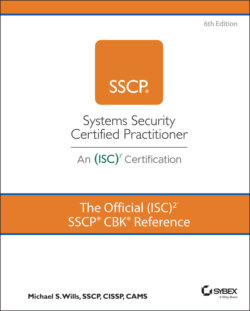Читать книгу The Official (ISC)2 SSCP CBK Reference - Mike Wills - Страница 97
Audits
ОглавлениеAudits are structured reviews that compare a set of security and risk controls, and the systems that they protect, against a controlled administrative baseline. This baseline can include inventories, performance standards, compliance standards and requirements, quality measurements and standards, or process maturity models and standards. Informal audits can be used as part of troubleshooting, to improve organizational knowledge of its own systems, or to gain insight into opportunities for improvement. Informal audits do not require the use of outside auditors who are trained and certified for the type of audit being performed. Formal audits, by contrast, are typically conducted to meet legal, regulatory, or contractual compliance needs, such as those imposed by governments or the organization's finance or insurance providers. Audits produce a report, which is typically addressed to the management or leadership levels of the organization that requested the audit. Although the structure of these reports can vary considerably, they usually include an executive summary of the audit, key findings, issues or discrepancies that need to be resolved, and any recommendations as appropriate.
Audits can place a significant burden on information security operations and support teams. Typically, extensive preparation is required to identify the audit baseline or standards that will be used and ensure that the auditors will be able to access all of the items being audited. Workspaces will need to be provided for the audit team, and the auditors may require special access and privileges to the IT elements being audited. They may also need to have IT systems to use for gathering and organizing audit data and to produce and report their findings.
